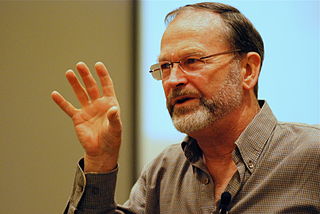Ein Zitat von Dennis Holmes Robertson
Der Wert eines gelben Metalls (Gold), das ursprünglich als Geld gewählt wurde, weil es die Fantasie der Wilden anregte, ist eindeutig eine riskante und irrelevante Sache, auf der man den Wert unseres Geldes und die Stabilität unseres Industriesystems gründen kann.
Themen zitieren
Verwandte Zitate
Gold ist einzigartig, weil es seit jeher als Wertaufbewahrungsmittel angesehen wird. Dennoch ist es immer noch eine Ware und hat keinen greifbaren Wert, und daher würde ich sagen, dass Gold eine Spekulation ist. Aber weil ich befürchte, dass Papiergeld möglicherweise entwertet wird und dass Papiergeld kein Wertaufbewahrungsmittel ist, möchte ich ein gewisses Engagement in Gold.
Ich habe versucht zu zeigen, dass die Fähigkeit, Steuern zu zahlen, nicht vom Bruttogeldwert der Warenmasse oder vom Nettogeldwert der Einkünfte der Kapitalisten und Grundbesitzer abhängt, sondern vom Geldwert der Einkünfte jedes Einzelnen im Vergleich dazu der Geldwert der Waren, die er normalerweise konsumiert.
Da Silber und Gold ihren Wert aus der Materie selbst haben, haben sie zunächst das Privileg, dass ihr Wert nicht durch die Macht eines oder einiger weniger Gemeinwesen verändert werden kann, da sie ein gemeinsames Maß für die Waren aller Orte sind. Aber das Grundgeld kann leicht erhöht oder gesenkt werden.
Vor über zweitausend Jahren lehrte uns Aristoteles, dass Geld dauerhaft, teilbar, beständig, praktisch und an sich wertvoll sein sollte. Es sollte haltbar sein, deshalb ist Weizen kein Geld; teilbar, weshalb Kunstwerke kein Geld sind; konsequent, weshalb Immobilien kein Geld sind; praktisch, weshalb Blei kein Geld ist; Wert an sich, weshalb Papier kein Geld sein sollte. Gold erfüllt alle diese Kriterien.
Gold ist nicht weniger, sondern rationaler als Papiergeld. Geld behält seinen Wert, solange es nur in begrenztem Umfang vorhanden ist. Gold wird immer in begrenztem Umfang vorhanden sein und würde echte Ressourcen erfordern, um es selbst aus dem Meer zu gewinnen; Papier und Druckfarbe sind nicht begrenzt verfügbar. Das Goldsystem kommt einem modernen automatischen wissenschaftlichen Kontrollsystem viel näher als das einfache und relativ instabile Papiersystem.
Die meisten Regierungen, nicht alle, aber die meisten, wollen sicherlich nicht, dass ihre Bürger Gold verwenden. Sie wollen sie in der Währung, die sie schaffen. Wenn sie Geld entwerten oder Geld drucken, geben sie es aus und möchten, dass es bei der ursprünglichen Ausgabe den größtmöglichen Wert hat. Sobald sie es ausgeben, verliert es natürlich an Wert für sie und alle anderen, die es besitzen. Aber sie brauchen Nachfrage für ihre Währung. Sie brauchen so viele Leute wie möglich, die es halten und abwickeln. Je mehr Menschen Gold verwenden, desto schwieriger wird es.
Wie Sie mit Ihrem Geld umgehen oder falsch damit umgehen, verrät uns, wer Sie sind, und, was noch wichtiger ist, es sagt IHNEN, wer Sie sind. Ihre Prioritäten, Leidenschaften, Ziele und Ängste zeigen sich deutlich im Fluss Ihres Geldes. Ihr Wertesystem oder das Fehlen eines solchen führt dazu, dass Geld um Sie herum, an Ihnen vorbei oder zu Ihnen fließt. Wenn Sie Geld besitzen, schreit das, was Sie damit machen, laut, wer Sie sind.
Das Geldproblem, mit dem das Land von 1789 bis 1896 konfrontiert war, bestand, weil der Kongress nie seine Befugnis ausübte, „Geld zu prägen oder seinen Wert zu regulieren“, sondern diese Befugnis, manchmal per Satzung und manchmal standardmäßig, an das Bankensystem delegierte. Dies trotz der Bestimmung in der Verfassung, die dem Kongress die Befugnis einräumt, „Geld zu prägen, seinen Wert und den Wert ausländischer Münzen zu regulieren und die Maß- und Gewichtsstandards festzulegen“.
Sie glauben also, dass Geld die Wurzel allen Übels ist? [...] Haben Sie sich jemals gefragt, was die Wurzel des Geldes ist? Geld ist ein Tauschmittel, das nur dann existieren kann, wenn Güter produziert werden und Menschen in der Lage sind, diese zu produzieren. Geld ist die materielle Form des Prinzips, dass Menschen, die miteinander verhandeln wollen, durch Handel handeln und Wert für Wert geben müssen. Geld ist nicht das Werkzeug der Moochers, die Ihr Produkt unter Tränen an sich reißen, oder der Plünderer, die es Ihnen mit Gewalt wegnehmen. Geld wird nur durch die Männer ermöglicht, die produzieren. Halten Sie das für böse?
Sie konnte jetzt so deutlich erkennen, dass er nur eine kindische Einbildung war, eigentlich nicht wichtiger als ihr verdorbenes Verlangen nach den aquamarinfarbenen Ohrläppchen, die sie Gerald entlockt hatte. Denn sobald sie die Earbobs besaß, hatten sie ihren Wert verloren, so wie alles außer Geld seinen Wert verlor, sobald es ihr gehörte.

































